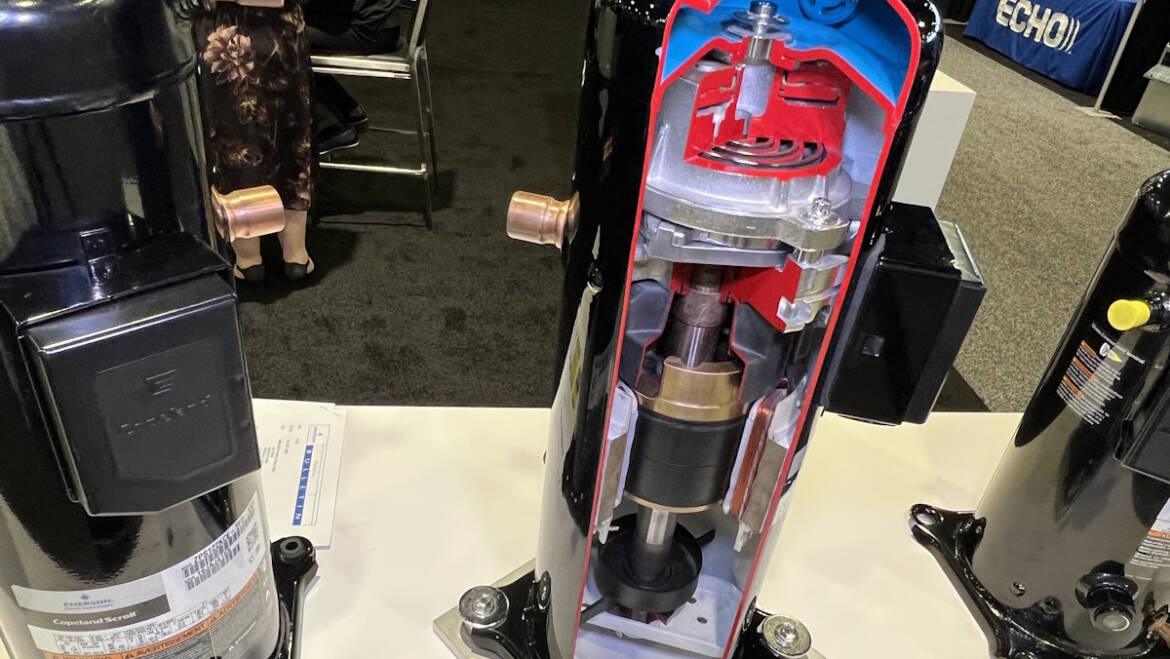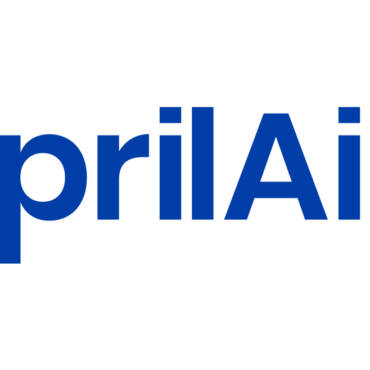Heat pumps are everywhere, but one bad install could spell disaster for a contractor’s reputation.
However, the reputation of heat pumps depends almost solely on their performance. Just as the industry saw when the technology first hit the scene, the difficulty they experienced in cold climates hurt their perception.
Now that the technology has exponentially evolved, one of the biggest challenges heat pumps face is being properly installed.
As Howard Weiss, president of the ESCO Group and HVAC Excellence, said, simply purchasing a high-efficiency heat pump does not guarantee a high-efficiency system. In other words, poor installation is almost guaranteed to lead to an irate homeowner.
“If a heat pump is not correctly sized, installed, and commissioned, it will not deliver the expected performance or energy savings,” Weiss said. “HVAC professionals with specialized training ensure that heat pumps operate at peak efficiency, providing optimal comfort and long-term reliability for consumers.”
Rising to the Challenge
To meet this surging demand for high-tech heat pumps, HVAC technicians are facing a make-or-break factor for staying ahead.
Staffing levels are low, and some of the industries more experienced may have spent their careers working on more traditional technology. As Weiss noted, the widespread transition to heat pumps faces a major challenge: a shortage of trained HVACR technicians who can properly install, service, and maintain these sophisticated systems.
Limited training and low staffing levels could lead to rushed, poor installs, which not only will ultimately damage the reputation of the heat pump, but also the contractor that was responsible for it.
A properly trained installer who follows both the manufacturer’s instructions as well as proper mechanical installation procedures can provide a level of assurance to the end user that the system will work as it was intended and designed by the engineers who developed and tested it, Tom Grunstra, Director of Program Development at the ESCO Institute, noted.
“The level of refrigeration skills and the technician’s ability at maintaining a clean, dry, and tight system is in my mind the number one skill that can extend the life cycle of the system and reduce the chances of refrigerant loss and or compressor failure,” Grunstra said.
Basically, if a contractor rushes a job, they are surely going to end up paying for it later, in one way or another.
“Many entry-level technicians and installers are missing fundamental training in the industry,” Grunstra said. “They are often learning shortcut methods and do not know ‘why’ they are doing things a certain way. Therefore, even if they are taught correctly ‘how’ to do something, when they feel pushed into a shortcut method, they may not be aware that their actions may severely limit the lifespan of the system they are installing.”
Getting Help From the Organizations Trusted By Pros
Organizations like ACCA and ESCO are incredibly valuable resources when it comes to training techs and getting a game plan in place.
One great place to start is with ACCA’s Manual H: Heat Pump Systems – Principles and Applications, which they consider their primary resource in this realm.
ACCA also offers smaller, private, in-person for local associations or companies that are based on Manual H. The comprehensive full-day course offers an in-depth exploration of heat pump systems, covering fundamental concepts and operational principles.
HIGH TECH: As Tom Grunstra said, “Today’s super high-efficiency heat pumps are more akin to a computer than a traditional air conditioner of 20 years ago.” (Courtesy of ESCO Institute)
“Participants will gain a solid understanding of how heat pumps work, along with an overview of various system types and their applications,” ACCA’s website states. “The course will delve into heat transfer methods used in different operating cycles, both familiar and lesser-known, and provide essential guidance on proper equipment selection and general installation best practices. Ideal for professionals looking to expand their expertise in heat pump technology and applications.”
ACCA also noted they are working on creating additional heat pump training materials based on that will be available more widely in a virtual format later this year. Additionally, they are looking at rolling out future “Energy Skilled” training with a goal of being approved by DOE for IRA-related topics, and that training will likely have a quiz/certification component to it.
Over at ESCO, the Energy Skilled recognition is a designation that helps homeowners and consumers identify qualified HVAC technicians for specialized home upgrades, particularly those involving heat pumps. In partnership with the U.S. Department of Energy, this recognition allows users of Google Search and Google Maps to easily find HVAC professionals who have demonstrated expertise in heat pump technology.
To earn the Energy Skilled recognition, a technician must successfully pass a recognized heat pump certification exam or complete a recognized heat pump training course. This ensures that they have the necessary skills and knowledge to install, service, and maintain heat pumps effectively.
“For HVAC technicians, this recognition enhances their credibility and visibility, helping them connect with more customers who prioritize energy-efficient home improvements,” Weiss said. “For consumers, it provides confidence that they are hiring a trained professional capable of delivering high-quality, efficient heat pump installations and services.”
Look To The Source
For even more equipment-specific training, it makes sense to also go directly to the manufacturer.
One of the most important aspects that impacts the performance and longevity of a heat pump — and really any HVAC system, for that matter — is proper installation, reliable controls, and regular ongoing maintenance similar to how you’d conduct annual upkeep on a vehicle.
At Johnson Controls, John Amos, associate director of Ducted Systems sales & technical training, said they offer immersive, live in-person and online training courses for contractors and distributors around the country through our state-of-the-art Ducted Systems Academy based in Oklahoma City, Oklahoma.
“We offer a multitude of training opportunities such as residential and commercial start-up and commissioning courses,” Amos said. “The training center features fully-functional live equipment, and procedures are demonstrated on operating equipment, with participants able to ask questions and engage with the instructor in real-time, regardless of if students are remote or in-person.”
JCI continually updates and expands its curriculum, and includes several courses specific to residential and light commercial heat pumps.
“We understand that everyone learns differently and is at a different point in their education, so at the Ducted Systems Academy, we aim to provide several types of courses for different levels of education, regardless of geographic location,” Amos said. “In short, we’re meeting you where you’re at to ensure that our education is accessible to everyone.”
For instant access, JCI also offers the new and improved Ducted Systems Solutions app for Apple and Android devices, providing contractors with instant access to technical resources and field training guides right at their fingertips on the job site. QR codes on the units take technicians directly to the resources in the app for start-up, commissioning, and troubleshooting to ensure they have all the information they need in one easily accessible place.
The Modern Heat Pump
“Today’s super high-efficiency heat pumps are more akin to a computer than a traditional air conditioner of 20 years ago,” Grunstra said. “Understandably, HVACR manufacturers are providing training tailored specifically for their products and systems. Today, a field technician needs to attend each manufacturer’s training courses for the systems they sell and install. That is the only way they can be capable and confident of the systems they provide for their customer’s comfort.”
There’s a lot of technology packed into these relatively small units, and they demand more than just old-school know-how to get set up. This even applies when looking at heat pumps from years past to the ones on the market today.
Unlike traditional HVAC systems, which typically consist of separate heating (furnace or boiler) and cooling (air conditioner) components, heat pumps provide both heating and cooling using a single system. This means that proper sizing must be based on heating loads, not just cooling loads, to ensure optimal year-round performance.
With more adaption of heat pumps, Grunstra also noted having a strong, economical option requires the use of variable speed inverter technology, higher-efficiency refrigerants, and very high-tech electronics.
It is now incumbent on both manufacturers and the supply houses that distribute the equipment to make sure they regain their customers’ confidence in their products, Grunstra added.
“Training contractors, installers, and technicians on the new products and technologies these systems require is the number one method of creating a trust relationship with technicians and installers,” Grunstra said. “This can help ensure better quality installations that can last reliably for many years.”
Amos said one of the biggest challenges manufacturers face is heat pump advancements pushing the technology into larger geographic regions than the heat pump traditionally served.
“Depending on the system and application, heat pumps can be an efficient option as far North as Canada, greatly expanding the service area of several years past, opening up new opportunities for contractors and distributors throughout the United States and Canada,” Amos said.
Amos said they work closely with engineering teams, and technical support to ensure they can adjust training courses based on trends they’re seeing with technical support call topics. This ensures that teams are closely collaborating and agile in the ever-changing market.
With more being expected from the heat pump in more diverse climates, it again all goes back to making sure they’re installed correctly to get the necessary performance out of them.

BROADER RANGE: Today’s heat pumps can operate in more climates, which means technicians need to be aware of more specifics to ensure proper performance. (Courtesy of ESCO Institute)
“Because heat pumps operate year-round, their installation and placement are critical. Outdoor units must be positioned to protect them from snow, ice, and debris, which could impact efficiency and longevity,” Weiss said. “Additionally, proper installation and refrigerant charging are essential to ensure the system runs efficiently in both heating and cooling modes.”
Another major difference is the energy source — traditional HVAC systems often rely on oil or gas for heating, while heat pumps operate using an all-electric vapor compression refrigeration cycle.
“This eliminates the need for combustion-based heating, making heat pumps a more energy-efficient and environmentally friendly alternative,” Weiss said.
A New Competitive Edge
Proper training is no doubt time-consuming and will come with associated costs, but the result is an enormous leg-up over the competition.
Being able to advertise that technicians have undergone training from manufacturers, or ACCA, or gained a certificate from ESCO, will boost visibility and trust.
Once technicians are delivering on all of the promised efficiencies and savings that were promised, that word will spread. In other words, big ROIs for customers mean repeat business, and likely referrals.
“A recent report showed installing high-efficiency heat pumps can yield an average ROI of 103%,” Weiss said. “Moreover, installing a heat pump can increase a home’s value by up to 3%, attributed to its energy efficiency, environmental benefits, and cost savings.”
Weiss noted that something like an Energy Skilled recognition not only boosts credibility, but can also help contractors land on an online directory powered by Google, making it easier for potential customers to find and trust their services.
“With consumers becoming more informed about energy efficiency and seeking qualified professionals for their HVAC needs, the Energy Skilled designation serves as a valuable differentiator,” Weiss said. “It helps technicians stand out in a crowded market, demonstrating their expertise in modern, high-efficiency systems like heat pumps. This can lead to more job opportunities, increased customer trust, and a stronger professional reputation in the HVAC industry.”
Foundation for Success
Efficiency, reliability, and profit — these are three things every contractor should strive for, all of which can be achieved with more training.
The heat pump wave isn’t going to fizzle out, and contractors right now can position themselves to ride it with the right tools.
“The demand for heat pump expertise is expected to grow significantly in the coming years as more homeowners and businesses seek energy-efficient alternatives to traditional HVAC systems,” Weiss said.
Additionally, the industry’s shift toward advanced refrigerants like R-32 and R-454B has further improved low-temperature performance, making heat pumps a viable solution even in the coldest regions of the U.S.
“As a result, HVAC professionals with specialized training in heat pump technology will be in high demand, ensuring proper installation, maintenance, and optimization of these advanced systems,” Weiss added.
Whether you require installation, repair, or maintenance, our technicians will assist you with top-quality service at any time of the day or night. Take comfort in knowing your indoor air quality is the best it can be with MOE heating & cooling services Ontario's solution for heating, air conditioning, and ventilation that’s cooler than the rest.
Contact us to schedule a visit. Our qualified team of technicians, are always ready to help you and guide you for heating and cooling issues. Weather you want to replace an old furnace or install a brand new air conditioner, we are here to help you. Our main office is at Kitchener but we can service most of Ontario's cities
Source link



